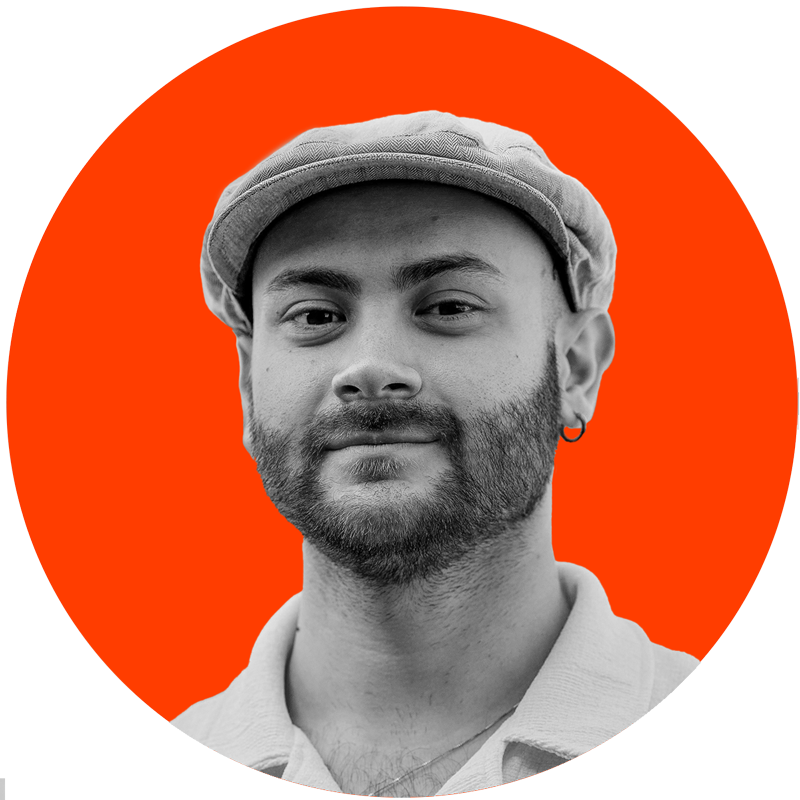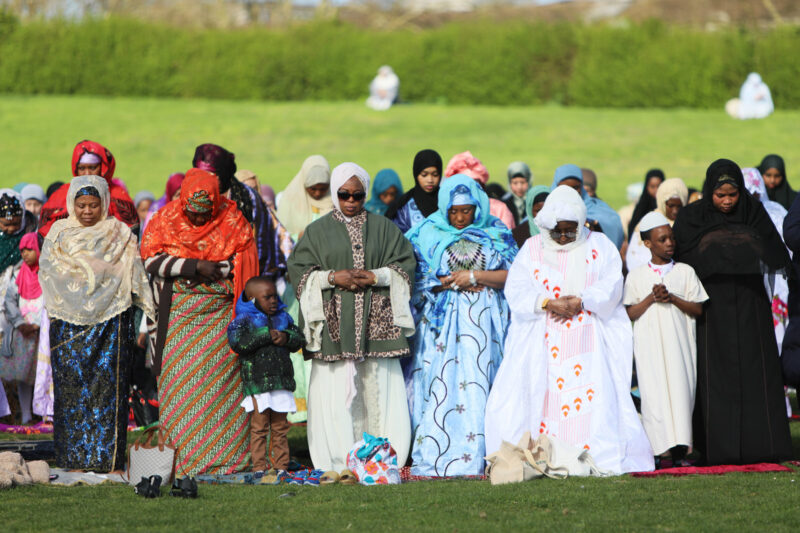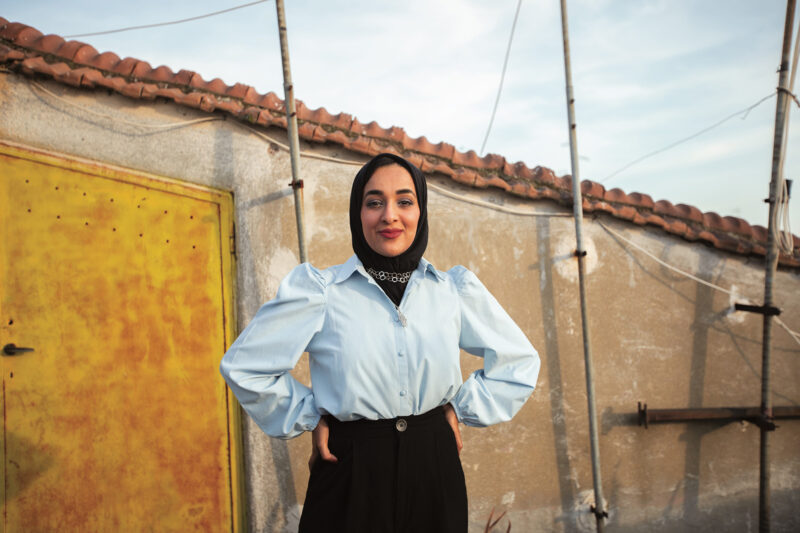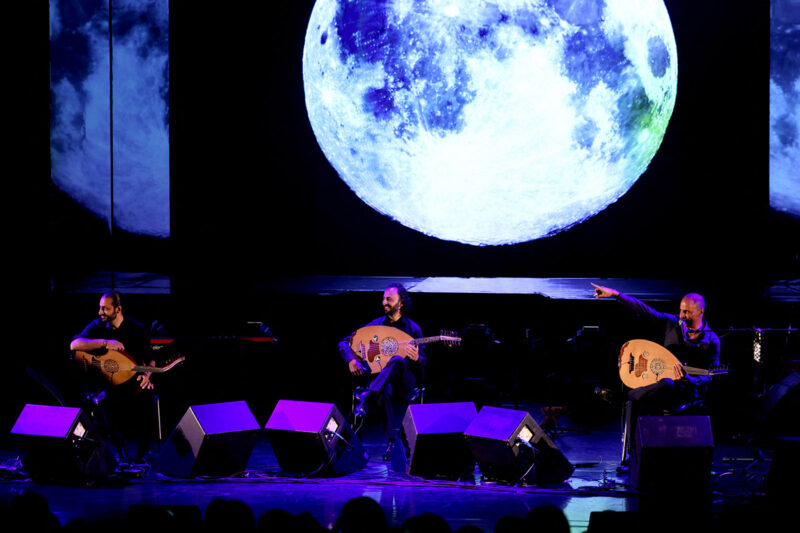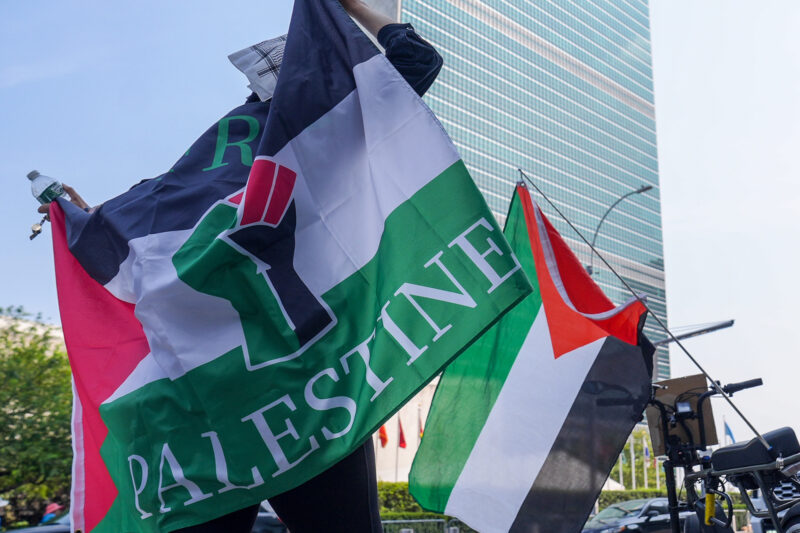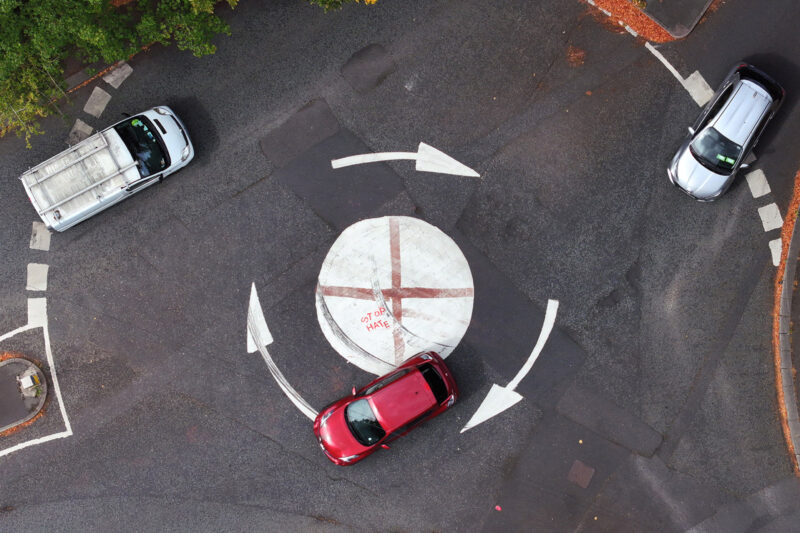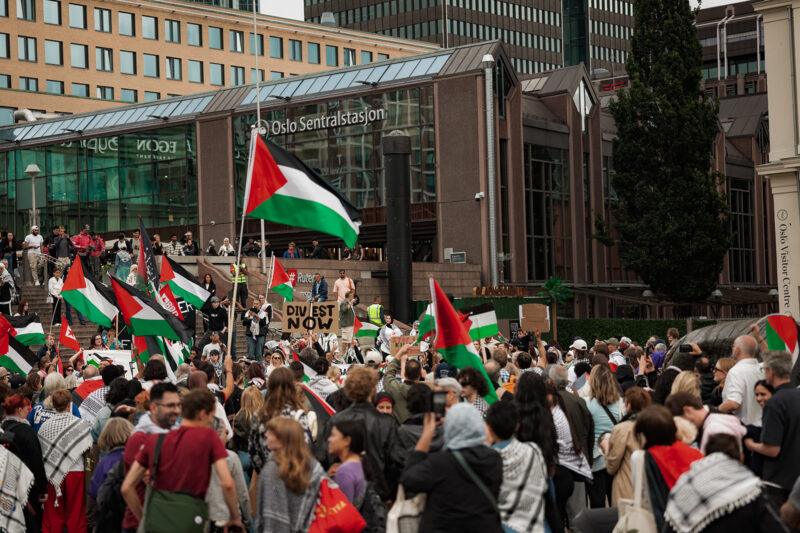Naples twinned in solidarity with Nablus
How a port city famed for its pizza, churches and volcanoes came to see its own struggle in the Palestinian cause
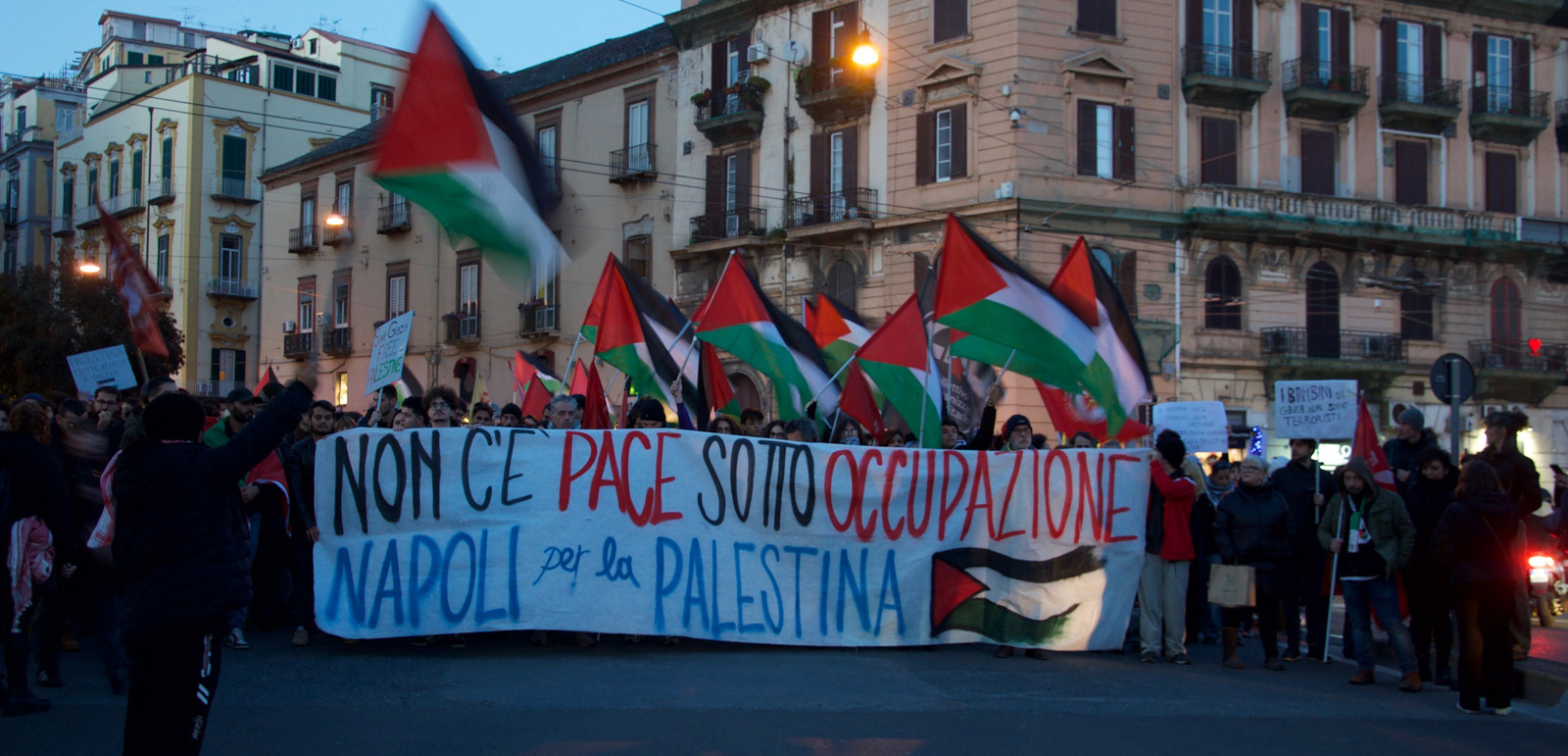
Since October 7, the Palestinian flag has become a symbol of solidarity – and controversy – across Europe, reflecting growing outrage at an Israeli military campaign in Gaza that has so far displaced more than 90% of its population and killed more than 23,000 Palestinians. In the Italian port town of Naples, however, from the housing projects on its periphery to the winding alleyways in its centre, the Palestinian flag has flown for decades.
These flags celebrate a special relationship between Naples and the Palestinian city of Nablus, formalised in 2005 when they became twin cities. Superficially, they are an unlikely pairing: one a vibrant coastal city famous for birthing pizza, the other a landlocked town in the heart of the occupied West Bank. But Neapolitans are quick to point out that their many similarities trace back more than 2,000 years to the Greek word Neapolis – new city – after which they were both named.
Simone Manzo, a 29-year-old resident of Naples and recent philosophy graduate, sits on a bench in a narrow street not far from where he grew up in Naples’s historic centre. He explains that in his family, the topic of Palestine was something he remembers hearing discussed since he was a child.
“I think here it’s spoken about more due to this cultural background that we have in common,” Manzo said. “This connection we share together with other nations and populations that have been victims of occupation.”
At pro-Palestinian demonstrations in Naples, it is common to hear protest leaders draw parallels between Palestinian resistance to Israeli occupation and Neapolitan resistance to Nazi forces during the Second World War. In a popular uprising in 1943, Neapolitan civilians kicked out Nazi forces from the city over a four-day period that would come to be known as “the four days of Naples”.
In April 2013, under the pro-Palestinian left-wing mayor Luigi de Magistris, Palestinian president Mahmoud Abbas became an honorary citizen of Naples. During the ceremony, Abbas declared that he was “honoured to be a Neapolitan” and celebrated “the historic friendship that binds our peoples and also the cultural and commercial relations, in particular between Naples and the city of Nablus.”
A strong cultural bond has grown between the cities’ residents since its twinning, with exchanges between the University of Napoli Federico II and An-Najah National University in Nablus, the cooperation of political institutions the Civil Society of Nablus Governorate and the City Council of Naples and the creation of a centre for dialogue and peace with Neapolitan observers based in Nablus. A deep sense of solidarity has developed, making Neapolitans among Palestine’s most vocal European allies.
Historically, Naples’s stance on Palestine has stood in stark contrast to the policies of Italy’s national government. In early December 2023, far-right prime minister Giorgia Meloni met with Israel’s president Isaal Herzog and said that “Italy stands alongside the Israeli people in this difficult moment and continues to work for a lasting peace”. But when the UN General Assembly voted on the right of the Palestinian people to self-determination on 10 November, Italy voted in favour, signalling that the country’s political establishment may for the first time be following the south in its sympathy for the Palestinian cause. The UN adopted the motion on 19 December.
During Israel’s current aggression in Gaza, Neapolitans were among the first to express their support for Palestinians. A week after Israel launched its bombing campaign in Gaza on 7 October, in response to the Hamas terror attacks in which more than 1,200 Israelis were killed, mainly civilians, and 200 kidnapped, thousands gathered in Piazza Garibaldi, the city’s biggest square, for the largest pro-Palestinian protest Naples has seen. A massive Palestinian flag that stretched nearly a block was carried by a diverse group of protesters including native Neapolitans, Palestinians and the city’s North African immigrant community while children played and danced underneath it. The mood was light but determined as people in nearby buildings clapped and gave thumbs-up to the crowd of people gathered below.
On 6 November, students at Naples’s Orientale University occupied the main campus building and organised speakers, debates and student-led lessons on Palestine. It was the first university in Italy to be occupied and in the following days and weeks more than a dozen other universities and high schools across the country followed suit. On 22 November, Naples city council became the first in Italy to unanimously pass a resolution calling for an immediate ceasefire in Gaza.
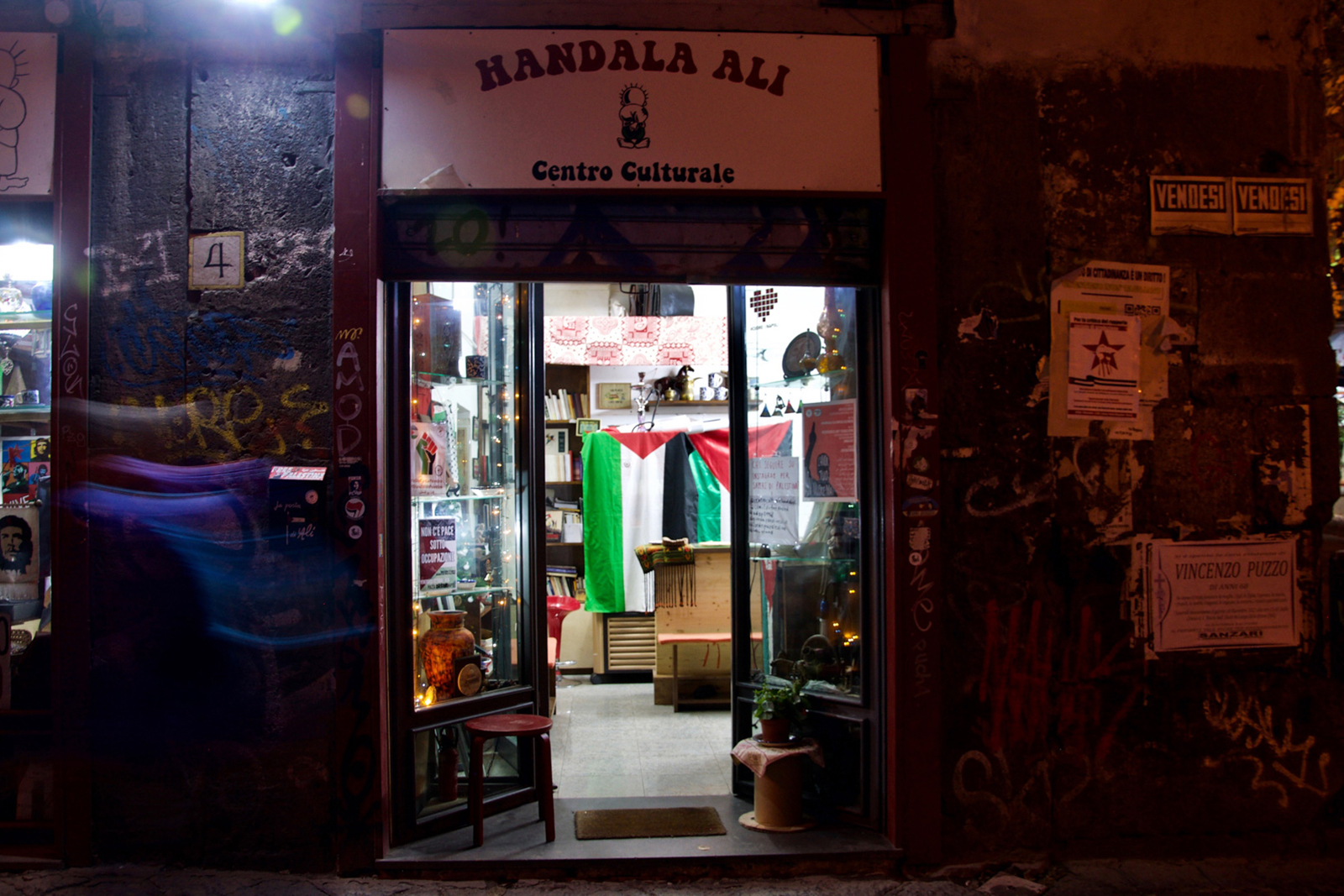
Manzo, who attends most of the city’s pro-Palestinian demonstrations, believes Neapolitans’ emotional connection to Palestine runs deeper than resistance to Nazi occupation. He believes Neapolitans identify with Palestinian subjugation because of the historic prejudice southern Italians endure from the rest of the country.
When the modern state of Italy was born in the 1860s, the northern kingdom of Sardinia-Piemont annexed the southern kingdom of the Two Sicilies during a process that would come to be known as unification. What happened during and immediately after the annexation of the south is a highly contested topic in Italy but it’s largely agreed that there was a transfer of wealth from the south to the north, which then levied high taxes on the south. There followed an insurgency of southerners against the northern army. Southern Italy still has the nation’s highest poverty and unemployment rates, while southern Italians who move to the north to find work can be met with housing discrimination and even assault.
“In certain regions of northern Italy, this discrimination is still explicit,” Manzo explained. “People are still at risk of being attacked verbally and in some cases physically for being southern Italian.”
“We are perceived as unwelcome guests in a nation that is not considered ours even though we helped build this country. That is why it is easier for us in Naples to identify with the colonised, the oppressed, the victims of a forced occupation than it is for us to identify with the coloniser.”
This historical culture of resisting occupation has drawn many Neapolitan activists to volunteer in Palestine. Among them is Emiliano, a 46-year-old Neapolitan pro-Palestinian activist who first visited the West Bank in 2014. What he saw there changed how he practised activism.
“I saw human wickedness,” Emiliano recalled, requesting that as a security precaution only his first name be published. “The way that the Israeli soldiers treated Palestinians at the checkpoints. I saw Palestinians who were lined up at a checkpoint at 4am simply to be able to go to work. They [Israeli soldiers] had no respect for their humanity.”
Emiliano was so moved by his experience that he returned in 2015 to help accompany children to school and protect them from attacks by settlers.
According to the Israeli human rights organisation B’Tselem, Nablus is one of the key flashpoints for settler violence against Palestinians. Between January and early December of this year, there were at least 99 documented cases of settler violence against Palestinians in Nablus and the surrounding villages. The worst were a series of attacks in late June in which hundreds of settlers set fire to and vandalised Palestinian homes, businesses and schools under the protection of the Israeli military.
Despite the many challenging situations he found himself in during his visits to Palestine, Emiliano said that he always felt welcome.
“Having been to the refugee camps of Beirut and Bethlehem, for me it really looked like I was in certain Neapolitan neighbourhoods. In Palestine, as a Neapolitan and a world citizen, they always made me feel at home.”
Naples shares this spirit of hospitality, according to its Palestinian residents. Zidan, a 19-year-old second-generation Palestinian who also asked to be referred to by his first name, said the city has always felt welcoming. He points to the Handala Ali Cultural Center – named after renowned Palestinian activist Ali Oraney – which has become a meeting place for pro-Palestinian activists and Neapolitans wanting to learn more about the nation and its culture.
“Every day people come to the Handala Ali Cultural Center to express their solidarity. From the oldest people to the youngest people,” Zidan said.
Every week since the protest in Piazza Garibaldi, there have been acts of solidarity in and around Naples. Protesters travelled to the nearby city of Salerno in an attempt to block a ZIM shipping vessel destined for Israel. Protesters have staged die-ins across the city – lying on the ground at train stations and on busy streets covered in white cloth in memory of Palestinains killed. Orange-growers from Calabria are donating their profits to provide first aid and medical supplies in Palestine. Zidan is confident that Naples will continue to lead Italy’s growing solidarity with the Palestinian cause.
While the national government remains sided with Israel, pockets of pro-Palestinian voices are emerging in unexpected areas of the country. The small, central Italian town of Assisi, known as a site of pilgrimage for Christians, saw more than a thousand people participate in a march for Palestine in December in what Italian media dubbed an “extraordinary” outpouring of support.
“In Naples we won’t stop speaking about Palestine and we will continue to denounce the war crimes that are being perpetrated at this moment in Gaza and in the whole of Palestine,” Zidan said. “We won’t stop, just as we have never stopped.”
 Newsletter
Newsletter

